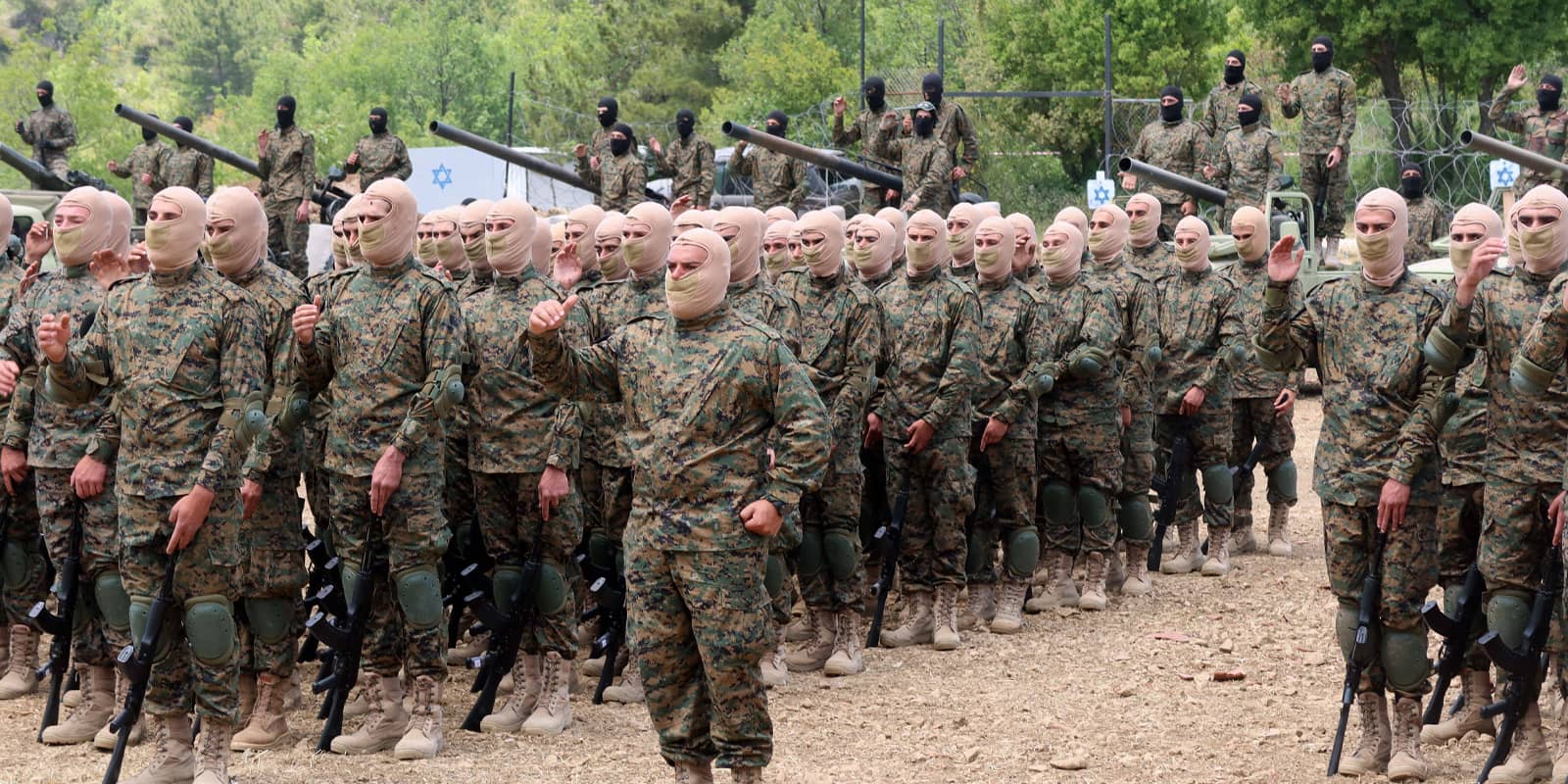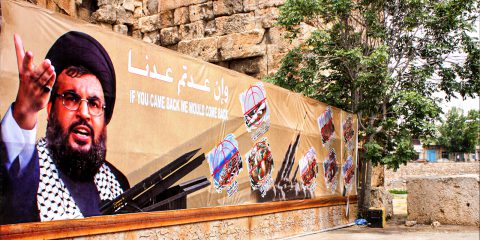Hezbollah’s increased boldness appears to stem from the steady erosion of Israeli deterrence. Jerusalem needs to change its strategy in Lebanon toward a gradual and controlled escalation.
The UN Security Council’s resolution on August 31 to extend the mandate of the UN Force in Lebanon (UNIFIL) was presented as a significant diplomatic accomplishment for Israel. Israel was pleased with a provision in the mandate granted to UN peacekeeping forces that expanded unrestricted freedom of movement throughout all southern Lebanon (not limiting it to just the border region). Moreover, UNIFIL was given permission to carry out surprise patrols across south Lebanon.
The UNSC decision includes a vague reference to UNIFIL’s need to coordinate with the Lebanese army, even if independent patrols are permitted. That allows the Lebanese army and Hezbollah a pretext to obstruct UNIFIL patrols.
Beyond the resolution’s wording, expecting UNIFIL to act against Hezbollah’s wishes is unrealistic. The peacekeeping forces are unlikely to take care of Israel’s interests in southern Lebanon. History shows that UNIFIL backs down when facing Hizballah opposition. Despite UNIFIL being granted the authority to prevent arms smuggling into Lebanon from Syria, there is not even one instance of a registered successful prevention. UNIFIL has been deployed in southern Lebanon since 1978, yet Hezbollah has strengthened and amassed over 200,000 rockets and missiles. Therefore, Israel cannot rely on external forces for its security. Invariably, the UN force has never effectively prevented hostile activities against Israel in any arena.
The endorsement of UNIFIL’s mandate by the UN Security Council comes amid ongoing tensions on Israel’s northern border. Since the start of 2023, Hezbollah has repeatedly provoked Israel. On March 13, a Lebanese terrorist, possibly acting on behalf of, or with Hezbollah’s knowledge, detonated a roadside bomb near the Megiddo junction. That resulted in a severe injury to a civilian. On April 6, Hamas operatives based in Lebanon fired 34 rockets into the Western Galilee, along with missiles targeting Metula, with indications of at least tacit approval from Hezbollah. Even if Hezbollah did not directly orchestrate or endorse these operations, it is reasonable to assume that they were aware of them, given their total control over south Lebanon.
On July 6, an anti-tank missile was launched toward Israeli territory, prompting Israel’s artillery fire toward the launch site. On June 21, Hezbollah erected two tents with armed operatives on Israeli sovereign soil, and they made repeated attempts to breach the border fence. For instance, on July 12, Hezbollah operatives tried to breach the border fence and were repelled by IDF stun grenades, which injured three Hezbollah members. On the same day, Hezbollah attacked surveillance cameras around the Fatma gate near Metula, even stealing one. These incidents were compounded by numerous clashes and breaches of the blue line by individuals posing as “farmers” and “refugees.”
Hezbollah’s increased boldness appears to stem from the steady erosion of Israeli deterrence. Initially, Israel signed a maritime border agreement with Lebanon on October 27, 2022, in response to threats from Hezbollah to take military action if Israel began production from the Karish gas field without signing the agreement with Lebanon.
Simultaneously, on July 2, 2022, Hezbollah dispatched three drones toward an Israeli gas rig. Approving the agreement while Hezbollah was issuing threats proved to be a mistake. These threats and actions by Hezbollah bolstered its influence within Lebanon, even among those who opposed the terrorist organization. In Lebanon, Israel was portrayed as capitulating to Hezbollah’s threats. Additionally, the Israeli government justified its decision to sign the agreement by citing a desire to avert a wide conflict with Hezbollah.
Moreover, Israel failed to respond to most of Hezbollah’s provocations over the past year, including occupying a tent on Israeli sovereign territory. This Israeli restraint further weakened deterrence against Hezbollah, emboldening the organization.
Cease the containment response in Lebanon
Israel is not inclined to escalate tension in the northern region and engage in a widespread military conflict with Hezbollah. Israel faces more pressing political and security challenges, including addressing internal divisions within Israeli society as well as the IDF, fostering closer ties with Saudi Arabia, advancing the Abraham Accords, and, notably, countering the Iranian threat, which includes a tacit nuclear agreement between the United States and Iran.
Nonetheless, Israel must bolster its deterrence against Hezbollah. Therefore, Israel should change its approach in Lebanon toward gradual and controlled escalation. In the initial phase, Israel needs to adopt measured military measures short of war, akin to Israel’s Campaign Between the Wars conducted in Syria and other parts of the Middle East. Israeli military action in Lebanon should be implemented incrementally, targeting “low-value” objectives before progressing to more strategically significant ones while maintaining a high degree of ambiguity and plausible deniability.
Covert military operations might diminish the likelihood of a retaliatory response from Hezbollah. That could force on Hezbollah a new equation that will, over time, incrementally erode the capabilities of the Shi’ite terrorist group and strengthen Israeli deterrence.
It can reasonably be assumed that Hezbollah does not currently desire a war with Israel for several compelling reasons. Its primary focus is within Lebanon’s domestic sphere, primarily driven by the severe political and economic turmoil engulfing the country. Within the Shi’ite organization, considerable efforts are under way to endorse a presidential candidate in Lebanon aligned with the Shi’ite camp, which enjoys Iran’s support. This endeavor involves prominent global players like France and the United States and regional powerhouses such as Saudi Arabia. Hezbollah would likely want to avoid appearing as an obstacle to national reconciliation efforts in Lebanon.
Furthermore, Hezbollah has presented the signing of the maritime border agreement with Israel as its own achievement without resorting to war. Recently, energy companies have initiated exploration activities for gas in Lebanon’s economic waters, and Hezbollah would probably not wish to be held responsible for undermining Lebanon’s economy and stability during a profound economic and political crisis.
Nonetheless, the proposed approach carries the inherent risk of military escalation that must be considered. Israel should prepare for the potential development of military exchanges for a limited period. In such a scenario, Israel could leverage the escalation to inflict significant damage upon Hezbollah’s military capabilities. That might involve targeting the organization’s missile stockpiles, launching pads, and command and control centers, particularly in southern Lebanon.
Without a willingness to escalate, Israeli deterrence will continue to erode. In parallel with earlier efforts, Israel should prepare for a war with Hezbollah. These military preparations should be complemented by enhancing defensive capabilities against missile barrages from Lebanon.
JISS Policy Papers are published through the generosity of the Greg Rosshandler Family.
Photo: Hezbollah stages military drill near the border with Israel, May 2023. Photo credit: IMAGO / Sipa USA









 - בניית אתרים
- בניית אתרים